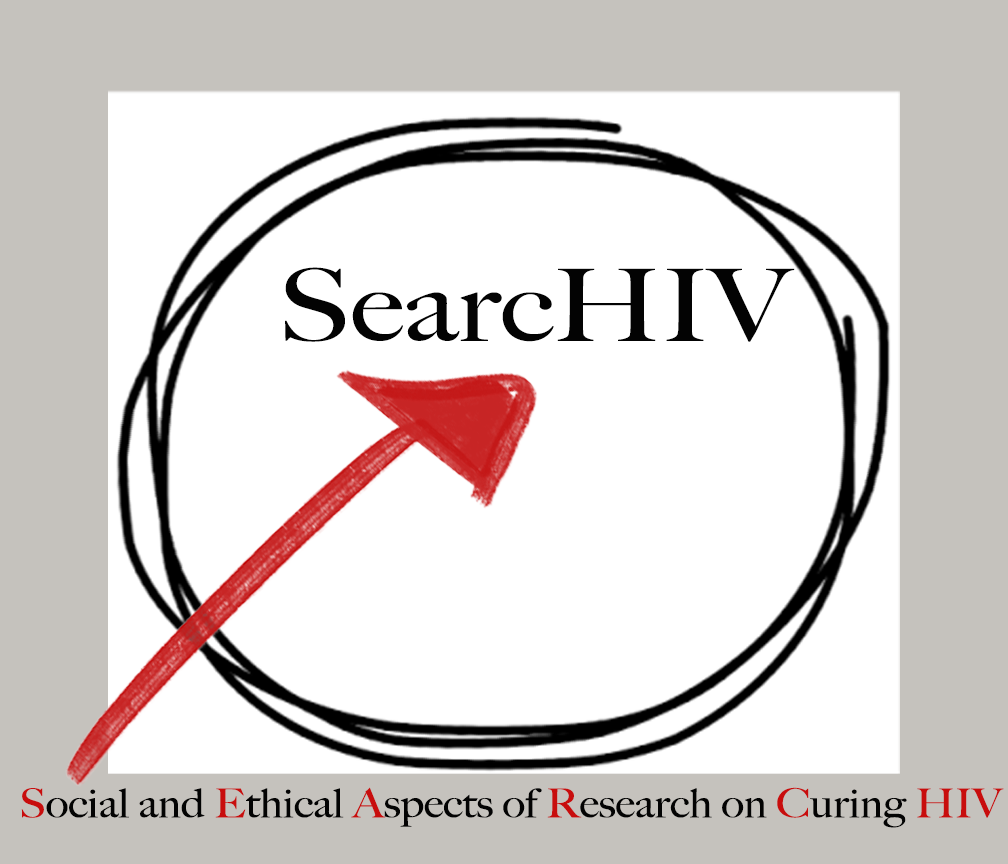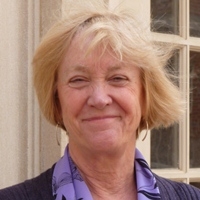We continue our series profiling members of searcHIV and others involved in HIV cure research with an interview with Gail Henderson. Dr. Henderson is Professor of Social Medicine in the School of Medicine and Adjunct Professor of Sociology at the University of North Carolina at Chapel Hill. Her teaching and research interests include global health inequality and research ethics. Dr. Henderson is a medical sociologist with training in public health and has extensive experience with interdisciplinary research and analysis.
1. Could you describe your background and tell us about what led to your interest in ethics, especially related to HIV cure research?
My path toward these interests has been far from linear. I started out as a social scientist and China scholar, focused on studying health and health care in post-Mao China. During the 1990s, I worked on a large-scale, NIH-funded survey of health and nutrition in China, which is still ongoing. The post-Mao period was an extraordinary natural experiment in the transition from investment in public health (with tremendous pay-off to improved health outcomes) to a market economy in medical care (which resulted in overall improvements but also great disparities). Layered over this foundational question of justice in allocation of resources were other ethics questions that emerged as I developed collaborations and research projects. An interest in ethics is often generated by needing to make sense of different political or cultural settings. There were so many things about studying Chinese and living in Taiwan and China, which compelled me to examine my own assumptions and values. At the same time, in the 1980s, I joined an interdisciplinary academic department (Social Medicine) with philosophers, lawyers, and bioethicists, among others, that included ethics teaching in our curriculum for medical students. I began to acquire the conceptual frameworks to consider ethics in the research I conducted, and which I observed in other settings. In 1999, I began collaborating with Social Medicine colleagues on an empirical study of phase I clinical trials in the U.S., which gave me the tools to think about ethical issues as they emerge in relationships between researchers and study participants. Gradually, my interests in global health inequality began to be complemented by these activities in ethics education and research.
This all (improbably) led me to the International Core of the UNC Center for AIDS Research (CFAR), which I co-directed from 2004-2014. CFARs are funded to assist HIV/AIDS researchers in whatever they need – from challenges in biostatistics to clinical issues. In my case, it was to provide help to HIV/AIDS researchers on ethical issues produced in the context of global health research. During this time, I certainly learned as much as I “assisted.” I met and worked a bit with Stuart Rennie on his Fogarty-funded bioethics training programs in Africa; and with the CFAR, I began to work on IRB capacity building—in China as well as Africa. In the 2000s, I served as consultant to the China CDC National Center for AIDS Prevention and Control, and the Malawi National Health Research Council, organizing ethics and IRB training workshops; and I served on Family Health International’s IRB for 6 years. I also mentored a number of Chinese social science and public health scholars who were supported by UNC’s Fogarty AITRP program. In 2007, my work on social aspects of HIV/AIDS in China was supported by a 5-year NIH grant, “Partnership for Social Science Research on HIV/AIDS in China,” collaborating with researchers from Peoples University of China and the Nanjing National Center for STD Control. The results of this project were published in a special issue of the journal AIDS and Behavior (2014). I recruited Joe Tucker (who had worked for many years with the Nanjing Center) to join in this “partnership” effort and when the HIV cure research R01 (the searcHIV project) was being developed, I was asked to join.
2. What are some of the most important ethical challenges you see related to HIV cure research?
To me, the biggest challenge is making sure that individuals understand what they may be volunteering for. As described above, I have been interested in ethical dilemmas raised by early phase clinical trials for a long time. Data from my R01, which investigated conceptions of benefit in early phase gene transfer trials (some of which were for HIV!), revealed the combined importance of multiple factors related to participant understanding, including individual-level and trial-level factors, as well as clear communication by investigators and language used in consent forms. Drawing upon this research and supported by the searcHIV project, I began by looking at what is written in HIV cure research consent forms. Certainly recruitment and what potential participants expect from cure research will be affected by the broader context of trials. The R01 is exploring many of these factors.
3. You’ve done work on the ethics of HIV cure research through the lens of the informed consent form. What surprised you most during your analysis of these forms?
Actually I was surprised that they were consistently realistic about medical possible benefits from participating (e.g., none).
4. Your research in Thailand sounds very interesting. Can you tell us more about it?
This all happened because I met Dr. Jintanat Ananworanich at the Brocher Foundation last May, where I learned about the extraordinary cohort of ~250 individuals diagnosed with HIV at very early stages of infection (the Thai RV 254/SEARCH 010 Cohort), targeted for recruitment to five unique HIV cure trials within the year. It was a natural and exciting opportunity to extend the goals of the searcHIV project beyond the data collection efforts in the U.S., South Africa, and China. I drafted a very talented social scientist to work with us, Dr. Holly Peay, who has conducted research on decision making for clinical trial participants. We quickly wrote an article which calls for the very research we hope to do: “What motivates participation in HIV cure trials? A call for real-time assessment to improve informed consent,” in the Journal of Virus Eradication (2015). Together with Dr. Ananworanich, we developed a decision making study; she obtained funding for the data collection, and hopefully, we will be successful in applications to support the analysis portion of the work. The study is being conducted in “real time,” to explore decision making among people in this cohort who are considering participation, and then follow both joiners and decliners prospectively as they experience trial recruitment, procedures, and outcomes, and assess overall decision satisfaction. This design has clear methodological advantages over cross-sectional, retrospective data collection approaches which are commonly used for such studies. Further, nesting our study within a single cohort, for trial recruitment by the same team and at the same site, allows us to control for factors which typically complicate analysis. We have plans to further develop and share our instruments and guidance for their use with colleagues conducting clinical trials in other settings and other populations within cure research networks.
5. Are the ethical challenges different between research projects in the US vs. those in Thailand?
I could answer “yes” and “no” with equal conviction. It seems to me that there are enduring challenges to any research conducted in any location. And yet the generalizability of our findings from the Thai decision-making study will be limited, certainly.
6. What do you hope comes out of your work with the searcHIV project?
For the Thai project, our hope is to create a set of questions that can be used in other cure projects, and gradually to develop a body of research that might answer question 5. More generally, I hope to contribute to the ongoing aims of the searchHIV project, and as always, expect to learn a great deal from this extraordinary collection of investigators, trainees, and advisors.


